Black History Month began as a week-long celebration founded by Carter G. Woodson, a historian, and well-known Minister Jesse E. Moorland. They planned the celebration for the second week in February to honor the birthdays of Abraham Lincoln and Federick Douglass. In 1976, President Gerald Ford officially recognized the month of February as Black History Month, asking the public to “seize the opportunity to honor the too-often neglected accomplishments of Black Americans in every area of endeavor throughout our history.”
Black History Month has evolved over the years since then, but the spirit remains the same: honor, celebrate, and amplify the contributions and successes of the Black community and culture.
To honor this month, we wanted to hear from our HHS team members on what Black History and Black culture mean to you! Here are some responses from HHS team members:
What does Black History Month mean to you?
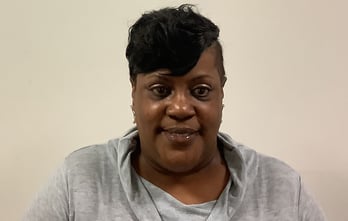 “My history means, my ancestors died, [were] lynched, enslaved and treated unhuman because of the color of their skin. But every beating, mistreatment, and sacrifice made was not in vain. As we research daily to find out more about our history, we are astonished at what we uncover and learn. Black history means we honor our ancestors for every sacrifice that was made and how they [overcame] everything that was against [them]. How they united together for the betterment of our culture and heritage, how they overcame the unthinkable and succeeded with greatness. How they paved the road of life for us today to vote, attend school, be great scholars, and accomplish anything in life we choose. We thank our ancestors for everything they endured. Without them [there] would be no Black history.” -Alfreda Carr
“My history means, my ancestors died, [were] lynched, enslaved and treated unhuman because of the color of their skin. But every beating, mistreatment, and sacrifice made was not in vain. As we research daily to find out more about our history, we are astonished at what we uncover and learn. Black history means we honor our ancestors for every sacrifice that was made and how they [overcame] everything that was against [them]. How they united together for the betterment of our culture and heritage, how they overcame the unthinkable and succeeded with greatness. How they paved the road of life for us today to vote, attend school, be great scholars, and accomplish anything in life we choose. We thank our ancestors for everything they endured. Without them [there] would be no Black history.” -Alfreda Carr
“Black History Month is a reminder to everyone in the country how innovative, hard-working, intelligent, and courageous African Americans truly are. [There have] been so many amazing previous leaders that dedicated their lives to change. Black History Month is a reminder that I am a proud Black woman.” -Tiffany Ford
On Black Culture
“My culture is everything to me. I love who I am and because of it, I am a stronger, more patient, and caring person. I love the ability we have to take anything, any situation and add a COOL factor to it. I love the strength of my culture and the ability to dominate anything.” -Charlene Pinckney
I believe that learning about my culture at an early age made a difference in my life. The struggle is real but you also have to understand that you can be whatever you want to be, and getting a good education is something that no one can take from you. I love my heritage because it taught me that even though things may seem as if the tunnel is dark and there is no sunshine if you keep working and striving… and [don’t] give up, there will be brighter days ahead.” -Tewuayana Haire
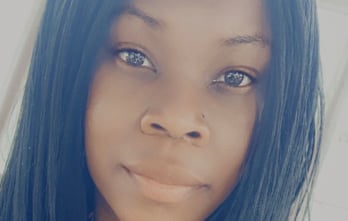 “My favorite part about Black Culture is our bravery. The way we fight our way through our barriers and impact the culture globally shows how we connect and collaborate to change the world.”
“My favorite part about Black Culture is our bravery. The way we fight our way through our barriers and impact the culture globally shows how we connect and collaborate to change the world.”
Tiffany Ford
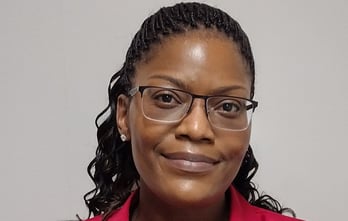
“My culture keeps me fighting for equal rights and justice for all people. I love our resilience.”
Wallis Berry
“Black American heritage is one of resilience and triumph despite the discriminatory events that have attempted to permanently oppress certain groups of people.” -Tommy Davis
Honoring the Generations That Came Before
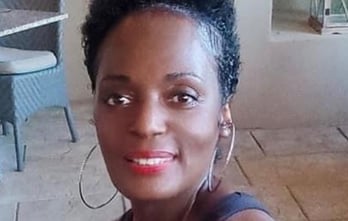 “[One of my greatest influences was] my mom. She was such a strong, independent soul. She taught me so many amazing values, but [mostly to] be true to who you are and let no one make you feel any less. She would always say, ‘There are good people in this world and there are bad people in this world, which one are you going to be?’ I truly miss her.”
“[One of my greatest influences was] my mom. She was such a strong, independent soul. She taught me so many amazing values, but [mostly to] be true to who you are and let no one make you feel any less. She would always say, ‘There are good people in this world and there are bad people in this world, which one are you going to be?’ I truly miss her.”
Tameka Harmon
“My uncle, Fred Carr, who’s a retired teacher from Hempstead High School in Long Island [had a significant influence]. My uncle had a sixth grade education but [went on to] graduate from Tuskegee University. What made me really proud of him was when he received an achievement award from the NAACP. Our family was there to see him receive it… I’ll never forget. My grandmother, Mrs. Julia Jackson, was one of the strongest minded, educated, disciplined and spiritual women to grace this earth. [She] was a nurse at Ft. Benning, Georgia and a housekeeper. She instilled in us great values… [and] respect for others, but most of all love for mankind. She was definitely our hero.” -Alfreda Carr
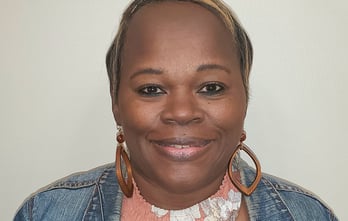
“My grandparents had the greatest influence in my life. I enjoyed sitting around listening to them talk about how they picked cotton from sunup to sundown. They would talk about how they had to walk miles and miles to get where they needed to go. They talked about the hard life and times they had but the conversation would always end with, ‘Keep your head up and keep God first and everything will work out in life.’ ”
Tewuayana Haire
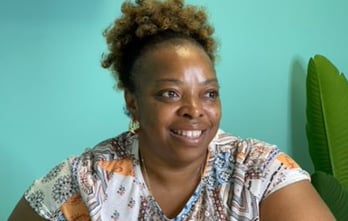 “My father has been the greatest role model for me. Despite his third-grade education, he became a supervisor in his company, achieving many awards. He made sure all five of his children attended college and his joy and love for all is an inspiration. At 80, he is still very active in his church and community.”
“My father has been the greatest role model for me. Despite his third-grade education, he became a supervisor in his company, achieving many awards. He made sure all five of his children attended college and his joy and love for all is an inspiration. At 80, he is still very active in his church and community.”
Charlene Pinckney
Leaving a Legacy
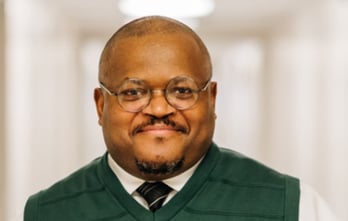 “I believe in seeing people as individuals as opposed to groups. This allows a person to identify opportunities for making social connections. Experiences differ, and thus, communication can tell the story better than assumptions.”
“I believe in seeing people as individuals as opposed to groups. This allows a person to identify opportunities for making social connections. Experiences differ, and thus, communication can tell the story better than assumptions.”
Tommy Davis
“Every year in February, I observe Black history with my team. We share our thoughts, ideas, and stories about the history. I also plan a luncheon where they chose certain foods that our ancestors shared and we still eat today.” -Alfreda Carr
“There is still a lot of work to do, but I do believe that if other cultures would try and learn about African-American culture and see how we are not truly considered equals in this country, things would start to progress. But there is still systemic racism, systemic imprisonment, and systemic cultural issues in America. White America has to take some kind of responsibility for past history in regards to slavery. ” -Tameka Harmon
